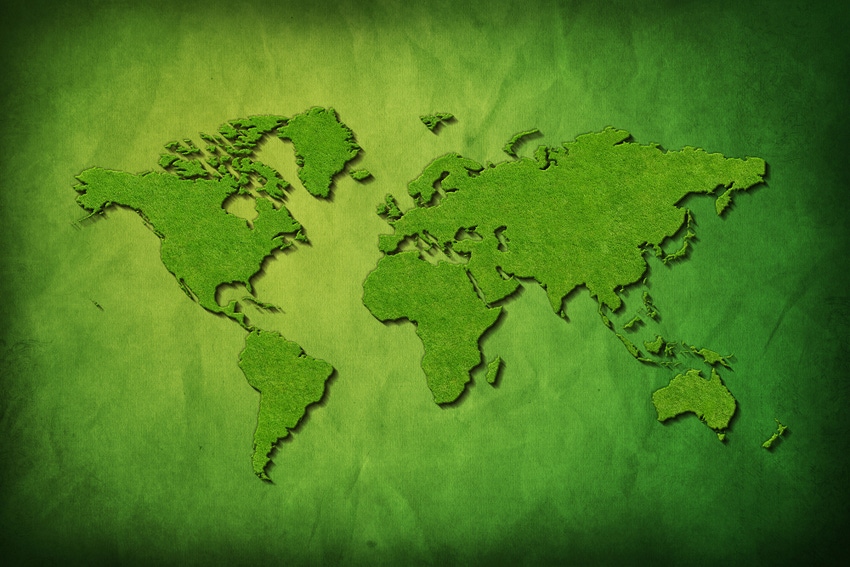FAO director-general notes all nations have work to do to assure sustainable, equitable and resilient food systems.
November 28, 2017

Agriculture is poised for another major transformation as gains from the "Green Revolution" come up against natural resource limits, U.N. Food & Agriculture Organization (FAO) director-general José Graziano da Silva said.
"The future of agriculture is not input intensive but knowledge intensive. This is the new paradigm," he said Nov. 27 in a keynote speech at the Chatham House think tank in London, U.K.
Food production increased over the last decades, but at a high cost to the environment, generating deforestation, water scarcity, soil depletion and high levels of greenhouse gas emissions. He said from now on, "nourishing people must go hand in hand with nurturing the planet."
Chatham House's high-level event, A Sustainable Food Future, was attended by government officials, corporate executives, researchers and institutional leaders. It focused on technology, resource use and resilience as levers for making sure the goals of eradicating hunger, tackling climate change and conserving natural resources are achieved together.
"Current food systems have been shown to be inefficient to eradicate hunger in the world," Graziano da Silva said, noting that actual output is more than enough to feed the entire global population, yet more than 800 million people still are undernourished.
Making sure everyone has access to food is as important as, if not more than, focusing on increasing production, he said, noting that social protection programs — such as conditional cash transfers and harnessing local production for school meals to boost both nutrition and smallholder farmers' access to markets — must be a core part of any effort to keep the situation of poor rural people in developing countries from worsening.
"We need to promote innovation and implement sustainable practices that provide nutritious and accessible food, ecosystem services and climate change resilience at the same time," Graziano da Silva said.
That entails reducing the use of pesticides and chemicals in farming, increasing crop diversification and improving land conservation practices, among other measures. FAO has actively supported promising efforts in this regard, including climate-smart agriculture and the establishment and protection of agricultural heritage systems, as well as various agroecology practices.
Interventions at every step
Graziano da Silva pointed to FAO's recent report, "The Future of Food & Agriculture: Trends & Challenges," that identifies 15 major trends and 10 challenges that policy-makers must be prepared to tackle in the coming years.
"All countries must commit to implementing fundamental changes," he said.
The role of the consumer is increasingly important, especially forms of malnutrition such as obesity are rapidly growing, he emphasized, noting that more than 2 billion people are overweight and 500 million are obese. That is a challenge faced by rich and poor countries alike and is poised to become more acute as rapid urbanization changes dietary habits.
"To provide people with healthier food, we have to act in each step of the food system from production to consumption," he said. That will require a focus on "immaterial aspects" of food systems, such as consumer behavior, and will require implementing new rules regarding how food products are advertised, he said.
It will also require coordinated action on global issues such as transboundary pests and diseases, antimicrobial resistance and food safety standards, he noted.
Food loss and food waste are a critical arena for intervention and fundamental for sustainable development. FAO's headline analysis is that one-third of the food produced globally is either lost or wasted every year — triggering unproductive greenhouse gas emissions and adverse impacts on natural resources and amounting to more than enough to cover the food needs of the world's population in 2050.
However, food losses in specific food chains can be much higher, especially in developing countries with inadequate or absent infrastructure, Graziano da Silva cautioned, noting that around two-thirds of output from West Africa's fisheries sector is lost.
"We need more investments," he said, noting that a holistic approach to reducing food loss and waste can contribute to a multitude of the U.N.'s Sustainable Development Goals.
You May Also Like

.png?width=300&auto=webp&quality=80&disable=upscale)

